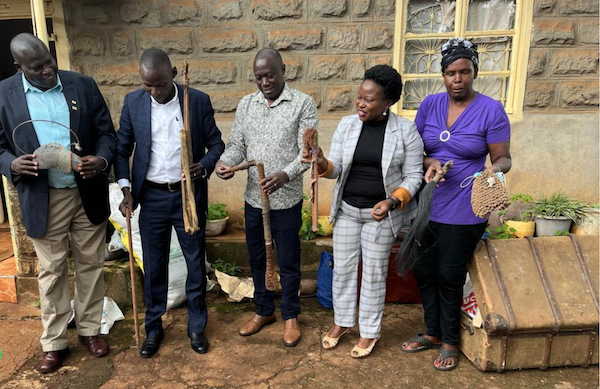The Ministry of Tourism, Wildlife and Antiquities (MTWA) has announced the successful return of a valuable collection of Karamojong cultural artefacts from Kenya to Uganda. These items, which include traditional regalia, ornaments, tools, and other objects of cultural importance, were taken during the colonial period by a British national named John Wilson, who worked in Karamoja as an Agricultural Officer.
Before he passed away, John Wilson expressed a strong wish that these artefacts should one day be returned to the Karamojong people in Uganda. His family honoured this wish. His wife, Anne Wilson, and their son kept the artefacts safe at their home in Kiambu, near Nairobi in Kenya, until the time was right to return them.
The Ministry’s Department of Museums and Monuments has now taken over full care of the artefacts. They were safely transferred and stored at Soroti Regional Museum. Before the public can see them, the items will undergo special conservation work and careful checks to ensure they are in good condition.
Jackline Besigye, the acting commissioner for Museums and Monuments at the ministry, described the return of the artefacts as a great moment in Uganda’s effort to protect and restore its cultural identity. She explained that these cultural items are not just old objects—they have deep meaning for the Karamojong people. They represent their history, traditions, and pride, and bring back a part of their heritage that had been missing for many years.
The artefacts will later be taken to the Uganda National Museum in Kampala as the government waits for the family of John Wilson to officially hand them over to the Ugandan state. In the future, they will be permanently housed in the new Karamoja Regional Museum that is being built in Moroto District.
Before the artefacts were returned, a team of experts from Uganda visited the Wilson family in Kiambu, Kenya. They worked closely with the National Museums of Kenya to examine, record, and pack the artefacts safely and professionally. The team also made sure all the proper permits were received from Kenyan authorities, following international laws on cultural property.
This return is not only a personal family act of goodwill by the Wilsons. It also shows the importance of respecting and restoring African heritage. It is a sign of ethical action, cooperation between countries, and a shared understanding of the value of cultural history. It also follows the African Union’s call to bring back cultural items taken during colonial times and helps support the wider effort to change the way museums tell African stories.
The ministry thanked the Wilson family for keeping the items safe and for respecting their promise to return them. It also praised the National Museums of Kenya and all other partners who helped make this historic repatriation possible.

